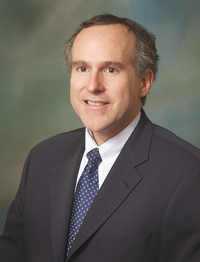Driving and dementia
BU researchers to help caregivers determine when loved one should not drive

Researchers at Boston University Medical Center (BUMC) are conducting a new study that could help caregivers of people with dementia, mild cognitive impairment, or Alzheimer’s disease address the difficult decision of when their loved ones should limit or stop driving.
Led by BU’s Alzheimer’s Disease Clinical and Research Program, researchers will evaluate new educational information and educational group sessions developed to give caregivers effective strategies to make decisions regarding their loved one’s driving. The study is a collaboration among BUMC, the Massachusetts Institute of Technology’s AgeLab and the Corporate Gerontology Group at The Hartford Financial Services Group, Inc.
According to BUMC researchers, driving and dementia continues to be a growing public safety issue as an estimated 4.5 million Americans have Alzheimer’s disease. Dementia can result in various cognitive impairments that affect an individual’s ability to drive safely, including limited judgment and insight, slowed reaction time, difficulties juggling more than one task at a time, and visual-spatial perceptual difficulties. Because of a lack of information and support, many caregivers of patients with dementia do not know how to communicate or implement decisions around limiting or stopping their loved ones from driving.
“Giving up driving can be a very difficult decision for people with dementia,” says Robert Stern, principal investigator of the study and associate professor of neurology at BUMC. “Patients may fear a loss of independence or may not be aware of their own driving inabilities. This study will examine how to support caregivers in dealing with the difficult decision of when they should limit or stop the patient from driving.”
During the study, caregivers will receive either a four-week group educational series on driving and dementia (a two-hour session, once a week for four weeks), or written materials and a one-time educational seminar on driving and dementia. Additionally, all study participants will participate in two, two-hour interviews along with two brief follow-up phone calls.
The study will be held at local community centers and other locations convenient to caregivers’ homes. For more information about the driving and dementia study, contact Jennifer Hunter at (617) 414-1188, or Stacy Carruth at (617) 414-1187 at the Boston University School of Medicine.